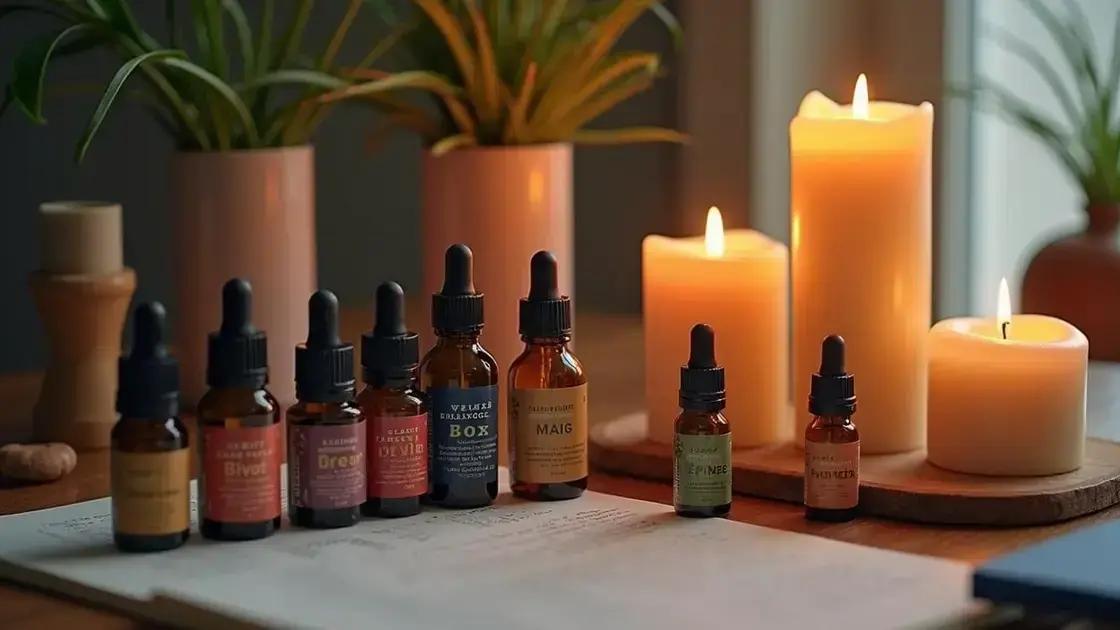The Smell Trick uses specific scents to enhance focus and performance, leveraging the brain’s connection between smell and memory. By choosing the right fragrances, such as peppermint for energy or lavender for relaxation, and incorporating them into your daily routine, you can create a more productive and enjoyable environment.
The Smell Trick is a fascinating method that many people are using to enhance their performance and focus. By utilizing specific scents, you can train your brain to improve memory, boost productivity, and increase overall efficiency. In this article, we will delve into how to use the Smell Trick effectively, the science behind why it works, and share practical tips to incorporate scent into your daily routine.
Understanding the Smell Trick

The Smell Trick refers to the powerful connection between our sense of smell and memory or behavior. Our brains are wired to associate certain scents with feelings and memories, which can be utilized to enhance performance.
When you inhale a specific aroma, it triggers a series of emotional and cognitive responses. For example, the smell of peppermint can energize and awaken the senses, while lavender is known for its calming effects. By understanding these connections, you can effectively use scents to boost your productivity and concentration.
Incorporating the Smell Trick into your routine is simple. Identify scents that resonate with you and understand the different effects they can have. Keep a fragrance spray or scented oils nearby to use during key tasks.
As you begin using scents intentionally, you will start to associate the smell used during a focused work session with improved performance. Over time, this conditioned response can create a more conducive work environment without distraction.
Key Takeaways
1. The Smell Trick taps into the brain’s emotional and cognitive pathways.
2. Different scents can evoke different responses: energizing, calming, or even inspiring.
3. Utilize scents consistently during specific tasks to create strong associations for improved focus and performance.
Science Behind Scent and Performance

The science behind scent and performance lies in how our brain processes smells. When we inhale, the olfactory receptors in our nasal cavity send signals directly to the brain. These signals are closely linked to the limbic system, which is responsible for emotions and memory. This connection explains why specific scents can trigger memories or impact our mood.
For instance, studies show that certain aromas can enhance our ability to focus and perform tasks. Citrus scents, such as lemon and orange, are known to uplift and energize, making them perfect for routine work sessions. In contrast, earthy scents like cedarwood can promote feelings of calm and stability.
Moreover, a study published in the journal Neuroscience found that when participants were exposed to pleasant scents, their ability to solve problems improved significantly. This suggests that using scents strategically can not only boost mood but also enhance cognitive function.
The Impact of Scent on Performance
1. Scent can invoke memories and emotional responses, enhancing focus.
2. Pleasant aromas can lead to better mood and productivity.
3. Different scents affect individuals differently, making it crucial to find what works best for you.
Practical Tips for Using Scent

Using scent effectively can enhance your performance and improve your mood during tasks. Here are some practical tips for incorporating scent into your daily routine:
1. Choose the Right Scents
Select scents that match the activity you are doing. For example, use peppermint or lemon when you need to boost your energy, and choose lavender or chamomile when you want to relax.
2. Use Scented Products
Incorporate scented candles, essential oils, or aromatherapy diffusers into your workspace. This allows you to create an environment that stimulates your senses and helps you focus.
3. Create Rituals
Establish a routine around specific scents. For example, light a certain candle or use a specific essential oil when you start work. This helps your brain associate that smell with productivity.
4. Be Mindful of Intensity
Choose scents that are not overwhelmingly strong. A subtle fragrance can be uplifting, while overpowering smells might become distracting.
5. Experiment and Adjust
Everyone responds differently to scents. Experiment with various fragrances and note how they affect your focus and performance. Adjust your choices according to what works best for you.
Success Stories: The Smell Trick in Action

Numerous individuals and businesses have harnessed the power of the Smell Trick to enhance performance in various settings. Here are some compelling success stories that illustrate its effectiveness:
1. A Student’s Focus Boost
A college student named Jessica struggled with concentration while studying for exams. After learning about the Smell Trick, she started using peppermint oil during her study sessions. Jessica found that the refreshing scent kept her alert and helped her retain information better. Her grades improved significantly by the end of the semester.
2. The Corporate Office Experiment
A marketing team in a corporate office decided to experiment with different scents during work hours. They used citrus scents to uplift moods and enhance creativity. The team reported feeling more energized and noticed a boost in brainstorming sessions. This led to more innovative ideas and increased overall productivity.
3. A Yoga Instructor’s Zen
Sarah, a yoga instructor, incorporated lavender essential oil into her classes to promote relaxation and mindfulness. She found that the calming aroma helped her students focus and sink deeper into their practice. Feedback showed that participants felt more at ease, allowing for a more fulfilling yoga experience.
4. Enhancing Retail Experience
A local cafe added subtle scents like vanilla and freshly baked bread to create a welcoming environment. Customers reported feeling happier and were likely to stay longer, which increased sales. The scent created a cozy atmosphere that encouraged return visits.
In Conclusion: Embracing the Smell Trick
The Smell Trick can be a simple yet powerful tool to enhance your performance in various areas of life. By understanding the science behind scent and its effects on our emotions and memory, you can strategically incorporate fragrances to help you focus, relax, and thrive.
With practical tips and successful examples from students, professionals, and instructors, it’s clear that the right scents can positively impact productivity and well-being. Whether you’re studying for exams, brainstorming creative ideas at work, or seeking a calming atmosphere in your practice, you can customize your scent experience to meet your needs.
Embrace the potential of scents to not only change your environment but also elevate your performance to new heights. Start experimenting today and discover how the Smell Trick can transform your daily routine.
FAQ – Frequently Asked Questions about the Smell Trick
What is the Smell Trick?
The Smell Trick refers to the use of specific scents to enhance focus, memory, and overall performance based on the connection between scent and the brain.
How can I choose the right scents for my needs?
Identify your goals—whether you want to boost energy, promote relaxation, or enhance creativity—and select scents that are known to achieve those effects, such as peppermint for energy or lavender for relaxation.
Can the Smell Trick really improve my concentration?
Yes, studies show that certain scents can stimulate the brain and improve cognitive functions, helping you to concentrate better during tasks.
What are some practical ways to use the Smell Trick?
You can incorporate scented candles, essential oils, or aroma diffusers into your workspace, create scent rituals, or use specific scents during work sessions to associate them with productivity.
Are there any success stories related to the Smell Trick?
Yes, many people, including students, office workers, and yoga instructors, have reported improved performance and mood by using scents effectively in their routines.
Is it necessary to use strong scents to see results?
No, it’s best to use subtle scents, as overpowering smells can be distracting. Find a balance that enhances the environment without overwhelming it.













